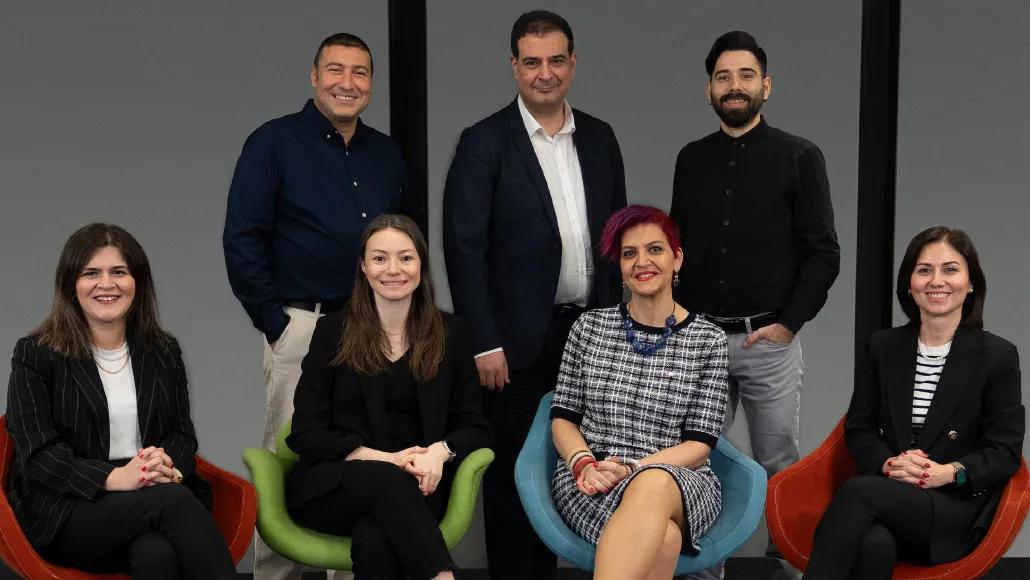TD Magazine Article
Member Benefit
Taking Bespoke Learning to New Heights
Pegasus Airlines provides targeted training for specific employee roles and professional development needs, with an emphasis on real-world applications.
Mon Jun 16 2025
Pegasus Airlines: 2025 BEST Award Winner, #14
Istanbul, Turkey

On its mission to become a leading low-cost airline, Turkey's Pegasus Airlines has focused largely on cultivating and retaining a highly skilled, future-ready workforce with a deep internal knowledge base. The talent development team has been critical in that effort, and a core part of its approach is to tailor training and professional development resources to each employee group while maintaining an organization-wide focus on digital proficiency and guest-centricity.
Using a segmented profiling approach for each function and role—from administrative functions such as HR, IT, and finance to operational positions in cockpit, cabin, technical operations, and ground operations—means that employees' skills development aligns with strategic performance objectives. Staff can also follow tailored employee journey maps for their particular function and role, which propose opportunities for professional development and career growth.
Because soft skills are critical to delivering exceptional guest service, the TD function has designed programs for different guest-facing teams that build their empathy, problem-solving, and communication skills.
"We design our programs by focusing on real-life scenarios that employees encounter in their roles," explains Güzide Bahar Ergökmen, head of Pegasus Academy. "Through interactive workshops, role-playing exercises, and coaching sessions, we create opportunities for employees to develop empathy, enhance their communication skills, and practice problem solving in a safe environment. By tailoring content to different teams—like cabin crew, guest services, and ground operations—we ensure that learning is directly applicable and impactful."
The company measures success of those targeted training programs using key metrics such as Employee Net Promoter Score and Employee Effort Score. That data provides insight into overall employee satisfaction and engagement levels. Recent improvements in the scores indicate that staff are more effective in their roles and feel greater satisfaction in their work, which has likely contributed to a notable reduction in turnover.
Tracking digital proficiency
A recent skills gap assessment identified "disruptive use of digital skills" as a need; employees not only have to become accustomed to using digital tools but also use them to drive efficiency and competitiveness. So, the TD team designed and implemented a digital skills training program, with workshops that cover productive artificial intelligence, data analytics, and digital problem solving. A big part of the initiative is helping employees gain the confidence to implement new digital tools in their work, which requires a fail-free, active learning environment.
"We took a hands-on approach by blending structured training with real-world application," states Ergökmen. "Employees participated in interactive learning sessions, received peer support, and had the chance to experiment with digital tools in their own workflows. By fostering a culture where trying new technologies is encouraged and mistakes are seen as learning opportunities, we helped employees gain confidence in using digital solutions."
To track program success and provide iterative feedback, TD designed a measurement known as the Digital Utilization Index. The index measures how effectively individuals adapt to the digital tools the training offerings introduced and the extent to which they use them in their daily work. It tracks key skills such as data literacy, AI-assisted decision making, and digital collaboration and assesses staff's adoption of platforms such as the company's HR and learning management systems. The index has proved highly effective in helping TD identify skills gaps and provide targeted training to improve digital fluency, Ergökmen says.
Experimenting with AI
The TD team has also created a training initiative to incorporate AI into the organization's business and operational processes. Its first cohort included 82 employees from a range of business units to explore different AI use cases. Participants created approximately 40 use cases.
"Several AI-driven projects have already made a significant impact," Ergökmen notes. "One of them is the Agent Support Virtual Assistant, which answers agent inquiries 24/7. By automating responses to nearly 400 daily questions, we've drastically improved response time and efficiency. Another success is FlyBot's AI-powered travel planning feature, a first in Turkey's aviation sector."
Ergökmen explains that the tool enables customers to plan their trips through chat, increasing customer satisfaction by 68 percent and boosting transaction capacity by 30 percent. "These initiatives demonstrate how AI is transforming both internal efficiency and customer experience."
Preparing leaders at every level
Knowing that smooth leadership transitions depend on well-prepared successors, the TD function identified 10 strategic leadership roles within the company and created tailored learning, development, and rotation plans for each one. That also helps ensure corporate knowledge retention, which is vital for operational efficiency.
In addition to role-specific succession plans, TD created leadership development programs for employees at various phases of their careers. "Leadership needs differ at each level, so we designed programs that address specific challenges and skills for different career stages," states Ergökmen.
For instance, GoLead enables frontline leaders to receive one-on-one coaching and mentorship from senior leaders to help them enhance their decision-making and strategic thinking skills.
GoAhead prepares midlevel managers for senior roles. It is a two-phased program where participants first attend training sessions held in partnership with a local university and then spend time analyzing real-world case studies and devising potential business solutions (another exercise in strategic thinking).
GoExe develops executives for strategic leadership. Such a tailored approach, Ergökmen points out, ensures that leaders receive the right support and development at the right time in their careers.
A result of the three programs is a significant increase in the Net Promoter Score, reflecting improvements in leadership practices. In addition, internal promotion rates for critical positions have risen, reflecting a stronger leadership pipeline.

